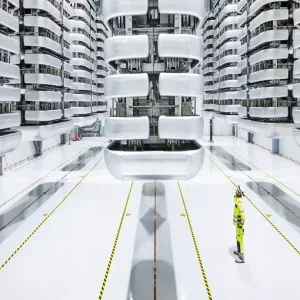The Netherlands-based Nuclear Research and Consultancy Group (NRG) has announced the successful completion of a programme in which EDF Energy studied the effects of irradiation creep on graphite – the process which causes graphite to change in dimensions and properties when irradiated and subjected to a load at high temperature.
The ACCENT programme was established in 2012 to generate data on graphite irradiation creep, and over four years, four consecutive irradiation stages were performed on loaded graphite specimens in the High Flux Reactor in Petten in the Netherlands.
EDF Energy launched a new graphite irradiation research programme in support of ageing management of Advanced Gas-Cooled Reactors (AGRs) in the UK, in February 2016, following its announcement of new scheduled closure dates for four of its UK AGR NPPs. AGRs feature a graphite moderator and are cooled using carbon dioxide.
NRG said on 11 January that, before and after each irradiation stage, all graphite specimens are characterised by their physical and structural properties in NRG's Hot Cell Laboratories. The data that has been generated shows how graphite properties change from the earliest onset of irradiation to high doses at end-of-life conditions for AGRs.
NRG will this year continue an irradiation programme for EDF Energy that will study the effect of graphite property changes with irradiation and radiolytic oxidation. Alongside the work for AGR reactors, more irradiations will be performed in support of graphite moderated High Temperature Reactors, it added.






